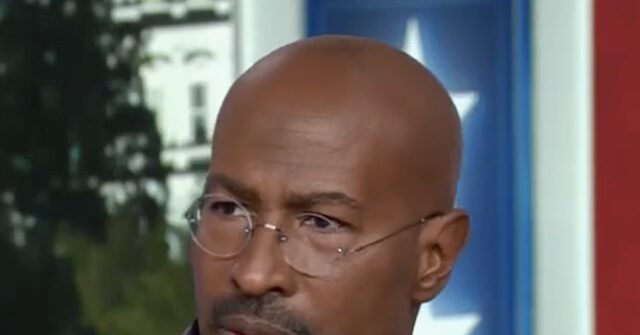During a recent CNN presidential town hall, political commentator Van Jones expressed his frustration regarding the different standards applied to political figures in America, particularly focusing on the disparity between former President Donald Trump and Vice President Kamala Harris. Jones argued that Trump is allowed to act lawlessly without facing the same level of scrutiny or pressure that Harris encounters, where she is expected to maintain a perfect image. This juxtaposition highlights the perceived unfairness in political expectations, especially for women in leadership roles. According to Jones, Harris faces a harsher lens of judgment, which he believes is indicative of a broader issue in American politics.
Political analyst David Axelrod also weighed in, commenting on how Harris is striving to move beyond the destructive and divisive tactics employed by Trump. Axelrod pointed out Harris’s emphasis on her plans and objectives, contrasting them with Trump’s focus on his so-called “enemies list.” This framing suggests that while Harris is concentrating on addressing substantive issues that affect the American populace, Trump remains fixated on personal grievances against his perceived adversaries. Axelrod echoed the need for this distinction to resonate with voters, emphasizing the importance of Harris’s forward-looking agenda as opposed to Trump’s incessant negativity.
Jones further elaborated on his observations, indicating that the scrutiny faced by Harris is not just about her performance but also about the systemic inequalities in expectations placed on male and female leaders. He likened the political landscape to an exam, arguing that while Trump operates with impunity, Harris is bound by a necessity to be beyond reproach. This comparison illustrates the double standards that exist within the political realm, where women must navigate a minefield of expectations that often do not apply to their male counterparts. Jones expressed his indignation at this discrepancy, pointing out that it is not only disheartening but also detrimental to the political climate as a whole.
The conversation around the disparate treatment of male and female politicians, particularly in high-stakes environments like presidential races, underscores the challenges that women face in achieving equality in political representation. Harris’s candidacy is seen as emblematic of a broader struggle for gender equity in leadership roles, where women are frequently judged more harshly for their actions and words. Jones and Axelrod’s comments serve as a reminder of the ongoing necessity to address the ingrained biases that contribute to these unequal standards.
As the political landscape becomes increasingly polarized, the necessity for leaders like Harris to articulate their policies and visions is paramount. Voters are looking for substantial solutions to pressing issues; however, the fixation on personal attacks and character defamation, as showcased by Trump’s style, complicates this narrative. With Harris focused on real policy discussions aimed at improving the lives of average Americans, there is an opportunity for her to carve out a distinct lane that emphasizes unity and progress, despite the challenges posed by political opponents.
In conclusion, the reflections shared by Jones and Axelrod highlight critical issues surrounding the perceptions of political leadership in America. The discourse pits the lawlessness exhibited by figures like Trump against the flawless expectations imposed on leaders like Harris, illustrating a cycle of unfairness that not only impacts individual politicians but also the political process as a whole. As the election approaches, it will be crucial for voters to recognize these dynamics, fostering a more equitable political environment that values substance over superficiality.

